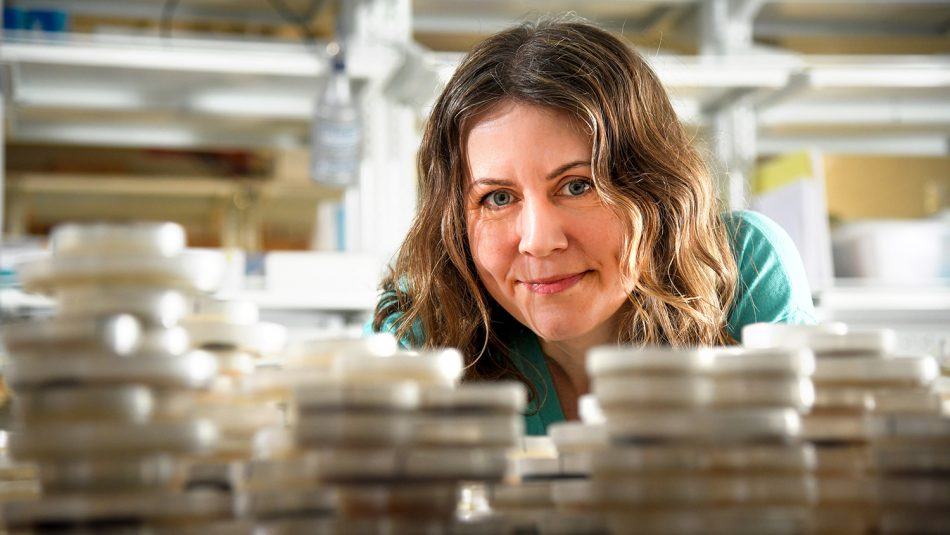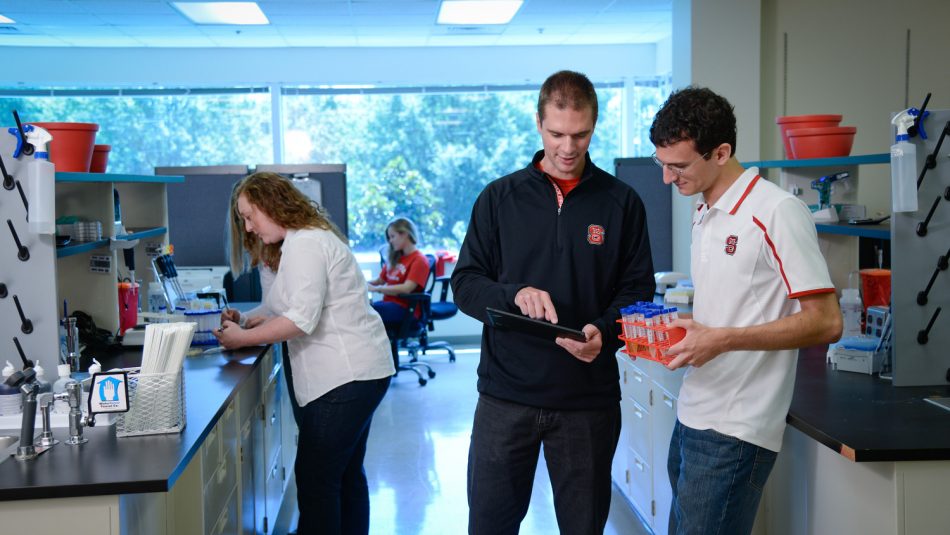Microbiomes and Complex Microbial Communities Christine Hawkes
Professor

Contact Information
Thomas Hall 2560B
Raleigh, NC
Christine Hawkes joined NC State in August 2018 as a Chancellor’s Faculty Excellence Program cluster hire in Microbiomes and Complex Microbial Communities. Hawkes is a professor in the Department of Plant and Microbial Biology, where she works to understand both plant and soil microbiomes. For example, all plants are home to fungi living in their leaves and roots, some of which can benefit the plant. Hawkes studies how these symbiotic fungi affect the ability of plants to tolerate stresses such as drought through ecological, physiological, genetic and chemical pathways. She also addresses the questions that affect our ability to use symbiotic fungi as tools in agriculture, such as where they are found and what drives their distributions, how fungi interact with each other in the plant, and how they assemble into communities.
Hawkes received her bachelor’s degree in environmental studies from Bucknell University, and her Ph.D. from the University of Pennsylvania. In her dissertation research, she addressed how soil microorganisms affected population viability of endangered plants. As a David H. Smith Postdoctoral Fellow, she studied the role of soil microbes in plant invasions and nitrogen cycling at the University of California, Berkeley. As a National Science Foundation (NSF) Postdoctoral Fellow, she addressed how root-associated microbes affect carbon cycling as temperature changed. Before coming to NC State, Hawkes was a faculty member at the University of Texas at Austin, where she developed a cross-disciplinary research program focused on how drought and climate legacies affect plant and soil microbiomes. Her work has been funded by the NSF, U.S. Department of Agriculture, and the Department of Energy, with publications in both ecological and agricultural journals. Hawkes has mentored graduate and undergraduate students, as well as postdoctoral researchers, in areas ranging from microbial community ecology to biogeochemistry and ecosystem ecology.
Visit the Hawkes Lab website.
